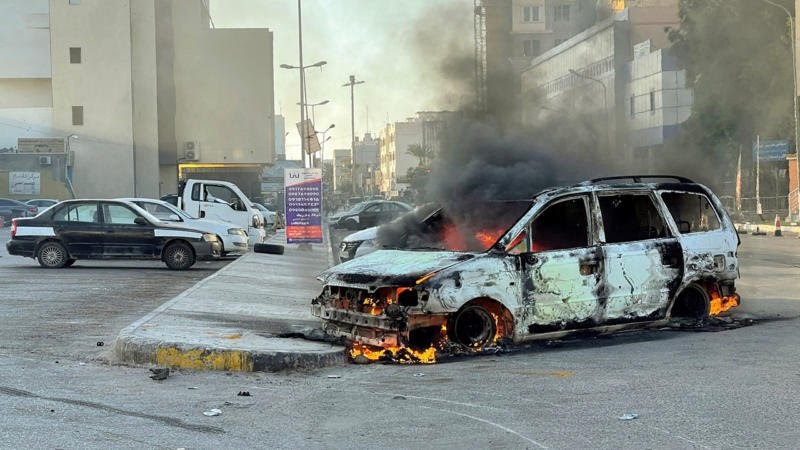After a struggle that raised concerns of a significant new conflict, the health ministry reported Sunday that clashes between supporters of Libya's competing administrations had claimed at least 32 lives.
The heaviest fighting in the Libyan city since a historic ceasefire in 2020 began on Friday evening when armed groups traded fire, damaging numerous hospitals and setting structures on fire.
By Saturday night, a cautious quiet had descended, according to an AFP correspondent.
Fighting broke out after months of escalating hostilities between supporters of Abdulhamid Dbeibah and Fathi Bashagha, whose opposing governments are battling for power in the North African nation that has experienced more than a decade of conflict since an uprising in 2011.
Bashagha has so far been prevented from taking office in the capital by Dbeibah's administration, which was put in place as part of a United Nations-led peace process after the conclusion of the last major battle in 2020. Dbeibah's administration contends that the next administration should be the result of elections.
Bashagha was chosen by the eastern-based parliament of Libya earlier this year and has the support of Khalifa Haftar, the strongman in charge of the region's military, whose attempt to take the capital by force in 2019 resulted in a civil war that lasted a full year.
Former interior minister Bashagha first disclaimed using force to seize control of Tripoli, but he has since made hints that he might do so.
Libya plunged into chaos following the 2011 overthrow and killing of dictator Moamer Kadhafi in a Western-backed uprising, with myriad armed groups and foreign powers moving to fill the power vacuum.
Certain armed groups seen as neutral in the latest crisis had moved to back Dbeibah this weekend to push back Bashagha’s second attempt to enter the capital.
Both sides exchanged blame on Saturday while world powers appealed for calm.
The UN’s Libya mission called for “an immediate cessation of hostilities”, citing “ongoing armed clashes including indiscriminate medium and heavy shelling in civilian-populated neighbourhoods”.
On Saturday evening, Dbeibah posted a video of himself surrounded by bodyguards and greeting fighters supporting his administration.
Dbeibah’s Government of National Unity said fighting had broken out after negotiations to avoid bloodshed in the western city collapsed.
Bashagha denied such talks had taken place, and accused Dbeibah’s “illegitimate” administration of “clinging to power”.
Local media reported later Saturday that a group of pro-Bashagha militias that had been making their way to the capital from Misrata later turned back.
Analyst Wolfram Lacher wrote on Twitter that Libya’s shifting alliances were “a never-ending story”.
“The armed groups that found themselves on the same side in yesterday’s Tripoli fighting will tomorrow clash over turf, positions and budgets,” he wrote.
“The factions that were pro-Dbeibah yesterday will challenge him tomorrow.”



